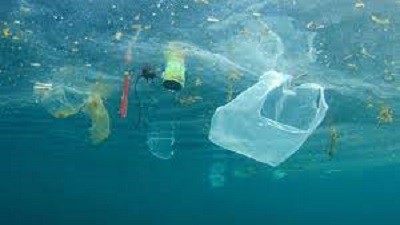Category : Plastic pollution | Location : National | Posted on 2022-07-08 01:26:12

In 2018, when India hosted World Environment Day on the theme Beat Plastic Pollution, Prime Minister (PM) Narendra Modi gave a call for eliminating single-use plastics (SUP). A year later, in his Independence Day speech, PM Modi raised the issue again and said, “Can we free India from single-use plastic? The time for implementing such an idea has come. May teams be mobilised to work in this direction... Shopkeepers should sell jute and cloth bags. Customers should adopt ways to reduce plastic usage. We must also put technologies in use to abolish plastic usage.”
There are very good reasons to stop using plastics. They harm the environment as well as the health of the people. Only a minuscule amount of plastics is recycled or destroyed in waste-to-energy facilities. Most end up in landfills, where they can take up to 1,000-plus years to decompose. Worse, plastics release toxic substances that leach into the soil and water. As they decompose, plastic breaks down into tiny pieces that eventually become microplastics. Newer research shows the presence of microplastics in soils, freshwater, and even the air we breathe. This is a matter of grave concern.
India’s call to eliminate SUPs provided momentum, leading to significant action on plastic pollution around the globe. This culminated in the historic adoption of ‘End Plastic Pollution: Towards an internationally legally binding instrument’ at the United Nations (UN) Environment Assembly meeting in Nairobi, Kenya, in March. The UN Environment Program’s executive director, Inger Andersen, called the agreement the most critical international multilateral environmental deal since the Paris climate accord.
In India, the ban on SUPs began on July 1. The ministry of environment, forest and climate change (MoEF) has also notified guidelines on the extended producer responsibility (EPR) for plastic packaging. The enforceable prescription of a minimum level of recycling of plastic packaging waste, collected under EPR by producers, importers, and brand owners, will strengthen the circular economy of plastic packaging waste. The EPR guidelines will also promote the development of new alternatives and give a push to sustainable plastic packaging.
The guidelines also mandate the use of recycled plastic content in packaging. The step will generate demand for recycled plastic material. Questions have been raised on alternatives. The Modi government believes that development should not come at the cost of the environment, and efforts to save the environment should not halt development. With that basic principle in mind and PM Modi’s call for Lifestyle for the Environment (LiFE), MoEF organised a national-level exhibition on alternatives to raise awareness. The states and Union territories (UTs) have been asked to organise similar fairs and provide incentives for an accelerated penetration of SUP alternatives.
Source: https://www.hindustantimes.com/opinion/singleuse-plastics-ban-a-big-leap-towards-a-better-planet-101657209446267.html